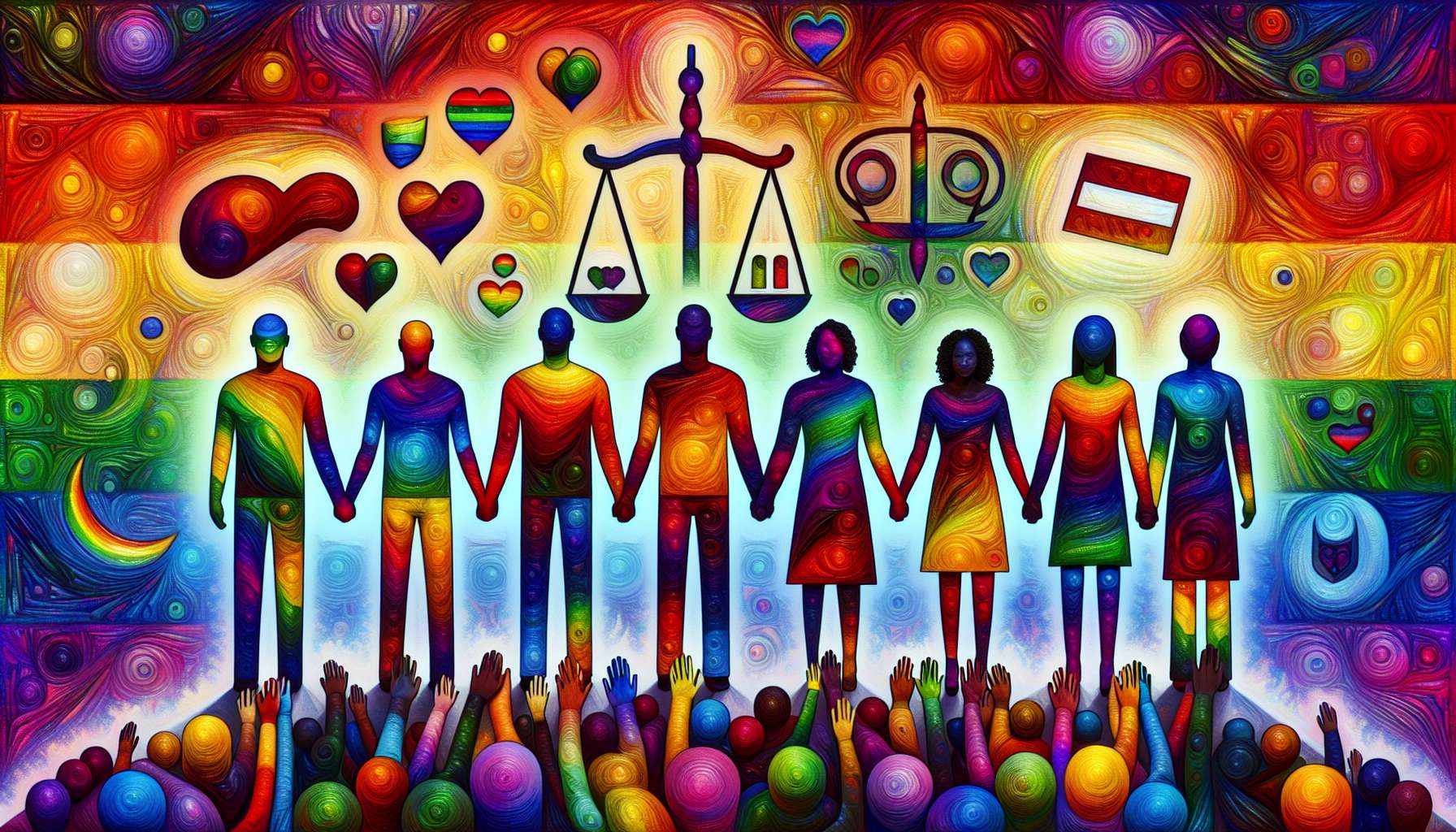Legislative advances in the area of LGBTQ+ people’s rights have been progressive and sometimes difficult to achieve, but they represent crucial steps towards equality and recognition.
One of the first battles was for the decriminalization of homosexuality. In France, homosexuality was partially decriminalized in 1791 during the French Revolution, but it was not until 1982 that the law of 1942, creating a criminal charge of homosexuality for relationships with minors under 21 years of age (while the age of sexual majority was 15 years for heterosexual relationships) was repealed. In the United Kingdom, homosexuality was decriminalized in 1967 in England and Wales, but it was not until 1980 for Scotland and 1982 for Northern Ireland. In the United States, decriminalization at the federal level came about in 2003 with the Supreme Court’s ruling in Lawrence v. Texas, invalidating the anti-sodomy laws still in effect in 14 states.
Another emblematic fight has been for the openness of marriage to same-sex couples. The Netherlands was a pioneer in this area, legalizing same-sex marriage as early as 2001. Belgium followed in 2003, then Spain and Canada in 2005. In France, the law opening marriage and adoption to same-sex couples was enacted in 2013 despite strong opposition from conservative and religious circles. In the United States, after years of legal and political battles state-by-state, the Supreme Court finally imposed the legalization of gay marriage at the federal level in 2015. Today, nearly 30 countries recognize marriage between people of the same sex.
Access to parenthood for LGBTQ+ couples has also been a major issue. Adoption by same-sex couples has often been legalized in a second phase after marriage, sometimes with restrictions. In France, the 2013 law allows joint adoption by married same-sex couples. Regarding medically assisted procreation (PMA), laws still vary widely from country to country. Some countries allow it for female couples and single women, while others reserve it for infertile heterosexual couples. In France, PMA was opened to all women in 2021, ending years of unequal treatment. Surrogacy (GPA) remains banned in many countries.
Legislative advances also concern the fight against discrimination and violence. Many countries have adopted laws prohibiting discrimination based on sexual orientation and gender identity in areas such as employment, housing, and access to goods and services. In France, this was the case as early as 1985 with the addition of the criterion of sexual orientation in the penal code. The concept of gender identity was added in 2012 and the fight against homophobia and transphobia was strengthened in 2004 with the increase in penalties for crimes and offences of a homophobic or transphobic nature. At the European level, a directive from 2000 prohibits discrimination based on sexual orientation in employment and work. Nevertheless, in many countries, LGBTQ+ people are still not explicitly protected by law.
A more recent issue concerns the legal recognition of gender change for transgender people. More and more countries are allowing a change in civil status without a medical condition (operation or sterilization), based simply on a declaration. This has been the case in France since 2017 with the law on the modernization of justice. Nevertheless, the procedure is often still cumbersome and pathologizing. Some countries recognize a third gender or neutral gender, such as Germany since 2018.
Despite these advances, there are still many challenges to be met. In many regions of the world, homosexuality is still criminalized, sometimes punishable by death. The rights of LGBTQ+ people can also regress under pressure from conservative governments or fundamentalist religious movements, as we have recently seen in Poland and Hungary. Even in countries where equality is enshrined in law, discrimination and violence persist in reality. LGBTQ+ people are overexposed to verbal and physical aggression, family rejection, school bullying, difficulties in accessing employment and housing. Laws alone are not sufficient to change attitudes and must be accompanied by educational and prevention work.
Lastly, some demands still struggle to emerge in public debate and to be translated into law, such as the legal recognition of homoparental families with more than two parents, the consideration of the specificities of intersex people and their right to self-determination, or the inclusion of LGBTQ+ people in school programs and professional training.
Points to remember:
– The decriminalization of homosexuality was a long and progressive struggle in many countries, spanning from the end of the 18th century to the beginning of the 21st century.
– The opening of marriage to same-sex couples was another emblematic battle, initiated by the Netherlands in 2001 and followed by nearly 30 countries since.
– Access to parenthood for LGBTQ+ couples remains a major issue, with advancements in adoption and PMA, but continuing restrictions, particularly on surrogacy.
– Many countries have adopted anti-discrimination and anti-violence laws to protect LGBTQ+ individuals, but their enforcement remains inconsistent.
– Legal recognition of gender change for transgender people is advancing, with a trend towards demedicalization, but procedures often remain onerous.
– Despite legislative advancements, the rights of LGBTQ+ individuals remain threatened in many countries and discrimination persists in reality, requiring education and prevention efforts.
– Some demands are still struggling to emerge, such as recognition of homoparental families with more than two parents, the rights of intersex individuals, or inclusion in school programs.
👉 To download docx (Editable) file click here : Click here
👉 To download PDF file click here : Click here
👉 To download MP3 file click here : Click here







